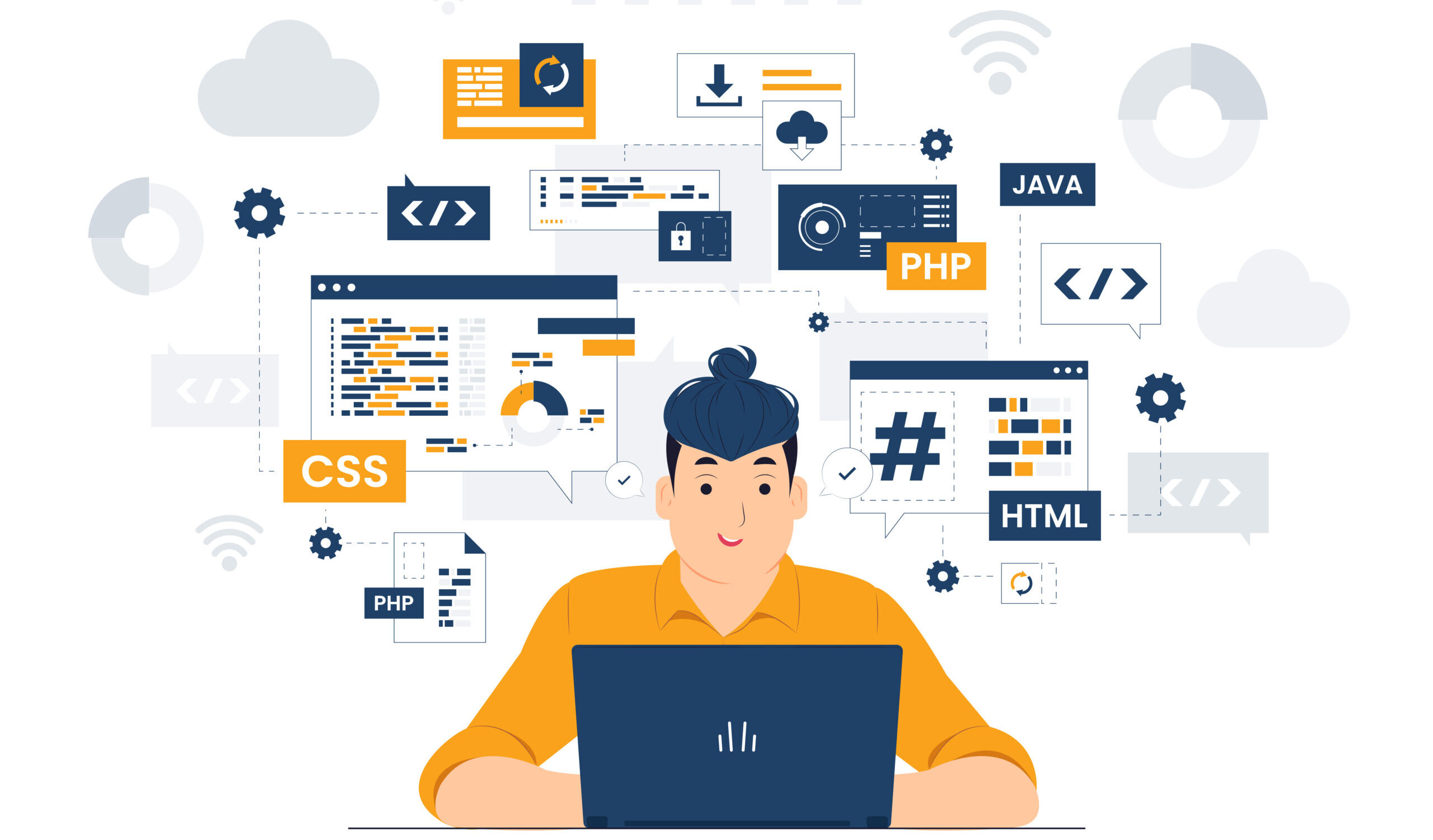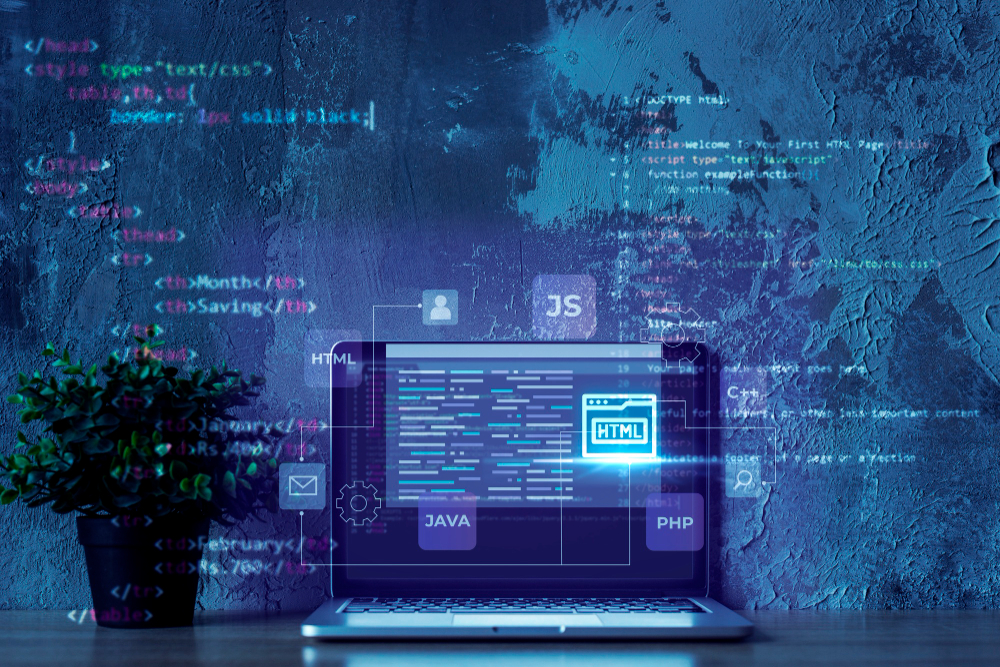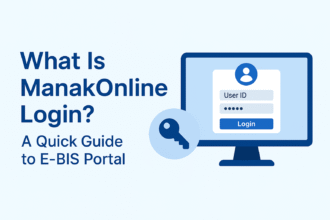How long does it take to become a software developer?
- 1 How To Become a Software Developer
- 1.1 Getting a Head Start
- 1.2 Education Path for Aspiring Software Developers
- 1.3 Specialization and Certification
- 1.4 Hands-on Experience through Externships
- 2 Developing Your Skills in Software Development
- 2.1 Enthusiasm for Coding
- 2.2 Troubleshooting Flawed Software
- 2.3 Learning on the Job
- 2.4 Independent Work
- 2.5 Effective Communication
- 3 How Much Time Does it Take to Become a Software Developer?
- 3.1 FAQs
- 4 Conclusion
Becoming a software developer is an exciting journey that many individuals embark on. It’s a field constantly evolving, demanding dedication and skill development. If you’re curious about the timeline to transition into this tech-savvy profession, you’re not alone. Now, let’s explore the answer: How long does it take to become a software developer, and what can you expect along the way?
How To Become a Software Developer

Getting a Head Start
The responsibilities of a software developer revolve around crafting and evaluating computer codes essential for creating software applications. These applications serve various functions in computer systems. While many software developers develop an interest in coding at a young age, there’s no prerequisite for being a coding prodigy during your teenage years.
If you find yourself drawn to the coding realm, there are numerous avenues for diving into this field. Online tutorials abound, explaining the code-building process in straightforward terms that everyone can grasp. Dive into these tutorials to explore coding more profoundly. Afterward, you can make an informed decision about whether this field aligns with your interests.
Education Path for Aspiring Software Developers
To step into the world of outsourced software development, a foundational requirement is a bachelor’s degree. You’ll explore essential subjects such as computer fundamentals, programming languages, software engineering, computer architecture, and data structures during your academic journey.
Building this educational foundation provides you with a broad understanding of the field. Each course you complete becomes a valuable asset in your professional portfolio.
Specialization and Certification
After obtaining your primary degree, the journey doesn’t end. Specialization becomes the next milestone. Certification courses offer a focused path, whether it’s becoming an applications engineer or a systems developer. Remember, the skills and knowledge gained here will enhance your professional profile.
Every class, test, and assignment contributes to your skill set. Strive for excellence, as these accomplishments become building blocks for your future success.
Hands-on Experience through Externships
Beyond the classroom, real-world experience is paramount. Consider externships, coding boot camps, or involvement in open-source projects. These opportunities enrich your skill set and serve as practical components for your evolving portfolio.
The more diverse your portfolio – with projects, certifications, and recommendation letters – the more compelling your profile becomes. It paves the way for smoother transitions into the professional realm post-graduation.
Developing Your Skills in Software Development

Enthusiasm for Coding
Possessing coding skills is just the beginning of excelling as a software developer. An unwavering enthusiasm for the craft is equally vital. The countless hours spent crafting each line of code require genuine passion. This passion fuels the dedication needed to thrive in the field.
Troubleshooting Flawed Software
A substantial part of your role involves scrutinizing code, be it yours or your team’s. A quick yet meticulous examination is essential to identify and rectify errors hindering smooth execution. Precision in troubleshooting is a hallmark of an adept developer.
Learning on the Job
In the dynamic realm of technology, static knowledge isn’t enough. Regular research is paramount to stay abreast of the latest programming languages and their advantages. Beyond coding languages, understanding facets like version control systems, unit testing, and open-source software is crucial for continuous growth.
Independent Work
As a coder, a significant portion of your work may seem esoteric to others in the company. The nature of coding often allows for remote work, giving you the autonomy to complete projects from the comfort of your home, relying solely on your computer.
Effective Communication
In this highly technical domain, effective communication is non-negotiable. Explaining the intricacies of your work to non-technical colleagues demands clarity. Whether it’s elucidating the capabilities of a software piece or navigating collaborative group projects, clear communication is the linchpin for success.
How Much Time Does it Take to Become a Software Developer?

The timeframe for becoming a software developer varies based on several factors. When did you discover your interest in software development? Did you opt for the traditional four-year degree route or choose an accelerated program for quicker completion?
Becoming a software developer is filled with twists and turns like life’s journey. Your progress speed is entirely in your hands. Once you’ve pinpointed your life’s direction, take prompt action and begin strategizing how to achieve your goal.
FAQs
Can I become a software developer without a computer science degree?
Yes, many successful software developers are self-taught or have non-traditional educational backgrounds. The key is dedication, practice, and building a strong portfolio of projects to showcase your skills.
How much time should I dedicate to learning each day?
Consistency matters more than the number of hours. Aim for a consistent, focused effort. Even dedicating 1-2 hours daily can yield significant progress over time.
What resources are recommended for learning?
Numerous online platforms offer courses, tutorials, and coding challenges. Websites like Codecademy, freeCodeCamp, and Udacity are popular choices. Books, coding bootcamps, and community college courses are also valuable resources.
Do I need to specialize in a particular programming language?
While it’s beneficial to have proficiency in one or more languages, the priority is understanding programming concepts. Start with a language like Python or JavaScript, then explore others as needed for specific projects or roles.
Conclusion
In conclusion, the path to becoming a software developer is a unique expedition for each individual. The time it takes is influenced by various factors, including prior experience, learning pace, and the depth of expertise one aims to achieve. Embrace the learning process, stay persistent, and remember that the journey is as valuable as reaching the destination. Whether you accelerate through the coding challenges or take a more gradual approach, staying committed to your goal is critical. Happy coding!

















